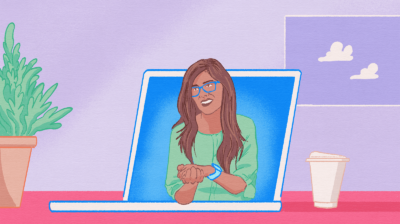What are antidepressants?
Antidepressants are used to treat a range of mental health conditions

Antidepressants are medications used to treat a range of mental health conditions, from moderate to severe depression to chronic pain. In this factsheet, you will find answers to the following common questions:
What are antidepressants?
How do antidepressants work?
What are the different types of antidepressant?
Will I experience side-effects?
What if I’m experiencing a side effect that’s not listed?
What other medications or substances should I avoid when taking antidepressants?
Where can I get antidepressants?
How long does it take for antidepressants to work?
How long should I take an antidepressant?
When can I stop taking my antidepressant?
Are there alternatives to antidepressants?
What are antidepressants?
Antidepressants are a type of medication used to manage the symptoms of depression, anxiety, and a range of other mental and physical health conditions. Antidepressants may be prescribed by medical professionals, such as GPs, psychiatrists, and specialist nurse practitioners, for patients who are experiencing mental health difficulties, such as:
- Moderate to severe depression
- Severe anxiety and panic attacks
- Obsessive compulsive disorder (OCD)
- Generalised anxiety disorder (GAD)
- Eating disorders, such as anorexia or bulimia
- Post-traumatic stress disorder (PTSD)
In general, antidepressants are prescribed if other types of non-pharmacological (i.e., not involving medication) treatments, such as talk therapy, have proved ineffective or the person specifically requests antidepressants. Antidepressants are often prescribed in combination with cognitive behavioural therapy (CBT) or other types of psychotherapy or counselling.
How do antidepressants work?
While we don’t know exactly how antidepressants work, researchers think they increase the levels of certain chemicals in the brain called neurotransmitters—chemicals in the brain that help transmit signals between nerve cells. These neurotransmitters can affect a person’s mood and sense of emotional wellbeing. While neurotransmitters like serotonin, norepinephrine, and dopamine are believed to play a key role in this process, the old idea that antidepressants “fix” a chemical imbalance in the brain is no longer supported by researchers.
What are the different types of antidepressant?
There are several types of antidepressants, including:
- Selective serotonin reuptake inhibitors (SSRIs): These are the most commonly prescribed antidepressants. They increase serotonin levels in the brain by stopping it from being reabsorbed by the nerve cells that release serotonin. SSRIs generally have fewer side effects than some of the other types of antidepressants, and include medications like fluoxetine (sold under the brand name ‘Prozac’) and sertraline (Lustral)
- Serotonin-noradrenaline reuptake inhibitors (SNRIs): These antidepressants work similarly to the SSRIs but also affect noradrenaline levels in the brain. Examples of SNRISs include duloxetine (Cymbalta and Yentreve) and venlafaxine (Efexor)
- Tricyclic antidepressants (TCAs): As well as affecting the levels of serotonin and noradrenaline in the brain, TCAs also affect other chemicals in the body, resulting in more unwanted side-effects than either SSRIs or SNRIs. TCAs are usually only prescribed to individuals with severe depression who do not respond to other antidepressants. TCAs are an older class of antidepressant and include medications like amitriptyline and clomipramine
- Monoamine oxidase inhibitors (MAOIs): MAOIs work by reducing the breakdown of serotonin and noradrenaline by the enzyme monoamine oxidase, with the result that both neurotransmitters act on the brain for longer. MAOIs are rarely prescribed because they carry a higher risk of dangerous interactions with other drugs and certain foods. They are typically only given by specialists when other treatments have failed
More detailed information on each antidepressant, how it works, possible benefits and side-effects, as well as how to take it can be found on the Youth Med Info website. Youth Med Info provides accessible information on mental health medications for children and young people.
Will I experience any side-effects?
Different types of antidepressants can affect people in different ways. While some people may not experience any side effects, others might. Some possible side-effects include:
- Nausea (feeling sick)
- Low sex drive, lack of orgasm and abnormal erection or ejaculation in individuals with penises
- Blurred vision
- Diarrhoea or constipation
- Dizziness
- Dry mouth
- Feeling agitated or shaky
- Insomnia (not sleeping well) or feeling very sleepy
- Loss of appetite (not feeling hungry)
- Sweating
Antidepressants can sometimes make your symptoms worse at first. There is evidence that they can cause suicidal thoughts or feelings in younger people. If you are feeling suicidal, it’s very important to visit your GP as soon as possible. If you’re thinking about acting on these thoughts, go to A&E right away for immediate help. Find out more information about suicidal thoughts and how to cope with them.
Side effects aren’t the only thing to think about when weighing the benefits and risks of starting an antidepressant. It’s also important to consider other factors, like how the medication might affect existing health or mental health conditions, pregnancy, or interact with any medicines you’re already taking.
What if I’m experiencing a side-effect that’s not listed?
While most doctors will be familiar with common side effects and drug interactions, there may be less common ones they don’t mention. To learn more, you can check the information leaflet that comes with your medication.
Remember, just because a side effect is listed doesn’t mean you will experience it. Side effects are identified in clinical trials (studies where the medication is tested on a group of people and its effects compared to a ‘control’ group, which does not receive the medication). In these trials, researchers record side effects when some people, usually a small number, experience them. However, some side effects may only show up after a company has marketed a drug, and once much larger numbers of people have been using the medication for longer periods.
If you think you’re having a side effect that isn’t listed, you can report it directly to the Health Products Regulatory Authority (HPRA) by filling out their online Human Medicines Adverse Reaction Report. You can also let your doctor know, and they can report it for you.
Which medications or substances should I avoid when taking antidepressants?
When taking antidepressants, it’s important to be cautious about possible drug interactions. Drug interactions occur when one substance affects the way another substance works, potentially leading to unexpected or harmful effects. For example, combining antidepressants with alcohol can increase drowsiness and impair your ability to perform tasks.
It is important to be careful when taking antidepressants in combination with other medicines as some can interact with antidepressants causing dangerous health effects or worsening of existing side effects. These include prescription medicines, over-the-counter medicines and herbal remedies.
For example, non-steroidal anti-inflammatory drugs (NSAIDs), such as ibuprofen which are available over-the-counter can interact with certain antidepressants. Herbal remedies, such as St John’s wort, a herbal remedy used widely for managing depressive symptoms, can also interact with antidepressants and other medicines.
If you’re considering taking a new medication or starting antidepressants while already on other medicines, consult your doctor or pharmacist to ensure it’s safe.
Where can I get antidepressants?
If you have been experiencing high levels of anxiety or low mood for at least two weeks, you might consider visiting your GP. You can talk about your symptoms and explore treatment options. If your GP thinks it’s appropriate, they might prescribe antidepressants. Sometimes, GPs will first suggest talk therapies and other treatments before prescribing medication, usually in combination with talk therapies.
Even if your doctor suggests antidepressants, it is up to you whether you decide to take them or not. If you choose, you can do your own research using trusted sources, such as medical websites, mental health charities, or scientific research studies, and decide what’s best for you.
If you are under 18, your GP may not prescribe antidepressants. Not all antidepressants are licensed for use by individuals under the age of 18. Since research on the use of antidepressants in children is more limited and there may be additional risks or complications, antidepressants are often prescribed to children and young people under the age of 18 by a psychiatrist.
If you are under the age of 16, you will require the consent of a parent or guardian before you can start an antidepressant or begin any course of treatment for your mental health difficulties. Read more on consent and receiving medical care under the age of 18.
How long does it take for antidepressants to work?
Antidepressants can take time to start working. In the first few days, you might notice a temporary worsening of your mood or mild side effects like a headache or nausea. If these side effects are not severe and don’t interfere with your daily life, it’s usually best to give it a couple of weeks before deciding to stop the medication, as these initial side effects often improve. If you are considering stopping or reducing your medication, it is best to consult your doctor or prescribing professional first to minimise the risk of unwanted side effects or harms.
You should start to see an improvement in your mood within 2-4 weeks if the antidepressant is working. Your doctor will start by prescribing the lowest dose of medication they believe will be effective. If this dose doesn’t improve your symptoms, they may gradually increase it until you notice a difference. Keeping a mood diary during this time can help you track your symptoms and any changes in your mood.
Since antidepressants affect people differently, your doctor might adjust the dose or try different types of antidepressants before finding the best option for you. If you don’t notice any improvement or if your condition worsens after 4 weeks, it’s important to go back to your GP. They can discuss your experience, consider adjusting your medication, or explore other treatment options, such as symptom and mood tracking.
How long should I take an antidepressant?
There is no set time for how long you should take antidepressants. However, medical professionals generally recommend that you stay on antidepressants long enough to see improvements in your mood, daily functioning, and overall well-being. This often means staying on the medication for at least 6 months after finding the right type and dose, but this can vary. Seeing a counsellor or psychotherapist during this time can help individuals to make and benefit from positive life changes, where possible.
The length of time a person remains on antidepressants depends on multiple different factors, including:
- The nature and severity of your mental health difficulties
- Access to psychotherapy that addresses the root cause of your distress
- How much you engage with a course of treatment or therapy (e.g., regularly attending sessions and working with your therapist), a factor that can be influenced by whether or not you feel your therapist or treatment provider is the right fit for you
- Exposure to traumatic or stressful life events
- Social and cultural factors that may amplify a person’s distress, such as social isolation, discrimination, housing instability, or poverty, etc.
Some people with severe mental health difficulties or additional health conditions might need to take antidepressants for a longer or even indefinite period. It’s important to regularly review your treatment with your doctor to make adjustments as needed.
When can I stop taking my antidepressant?
If you’re seeing significant improvements in your mood or positive changes in your life from therapy, you might wonder when it’s time to stop taking your antidepressant. It’s important not to make any changes to your treatment without consulting your doctor, preferably the one who prescribed the medication.
If your GP or healthcare provider considers it safe, they can help you taper off your antidepressant gradually to minimise withdrawal effects. Withdrawal effects are symptoms that can occur when you stop taking medication suddenly. These might include nausea, headaches, or mood changes. Gradually reducing the dose helps avoid these effects.
Are there alternatives to antidepressants?
There are lots of different ways to cope with a mental health condition like depression or anxiety. Antidepressants are just one part of a much bigger picture. Antidepressants may be very effective in helping to reduce symptoms of low mood and/or anxiety for some people, while for others, antidepressants may have little to no effect. For a minority of people, antidepressants may lead to negative side-effects that are difficult to tolerate and may even make their mood worse.
Whatever your individual experience with antidepressants, it’s important to know that there are alternatives available and not everyone experiencing distress requires an antidepressant to feel better. You and your doctor can work together to determine the best options for your recovery.
Talk therapies, like cognitive behavioural therapy (CBT) and other types of counselling or psychotherapy, can be great options to try on their own or with other treatments. Read more about how to access private counselling and psychotherapy, including free and low-cost counselling options funded by the HSE.
Additional self-help strategies can also help to support a person’s overall wellbeing, such as:
- Practising good sleep hygiene (e.g., setting a consistent bed-time routine, winding down and minimising screen time in the hour before bed)
- Eating a balanced diet
- Getting regular exercise
- Avoiding or minimising one’s intake of drugs and alcohol
- Strengthening relationships with friends and family
Visit the HSE’s website for self-help guides, tools and activities for improving your mental health.
Feeling overwhelmed and want to talk to someone?
- Get anonymous support 24/7 with our text message support service
- Connect with a trained volunteer who will listen to you, and help you to move forward feeling better
- Whatsapp us now or free-text SPUNOUT to 50808 to begin.
- Find out more about our text message support service
If you are a customer of the 48 or An Post network or cannot get through using the ‘50808’ short code please text HELLO to 086 1800 280 (standard message rates may apply). Some smaller networks do not support short codes like ‘50808’.






